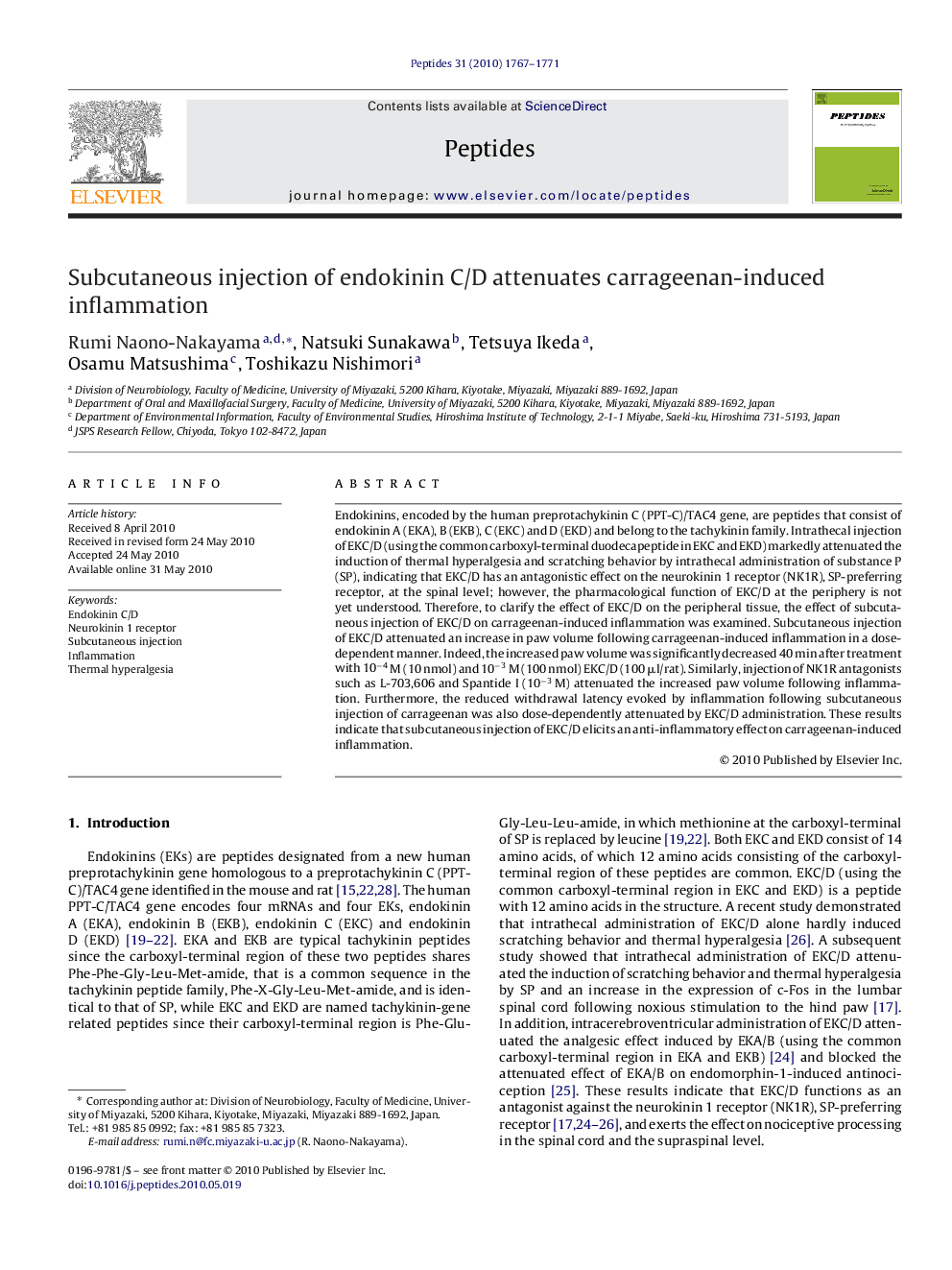| Article ID | Journal | Published Year | Pages | File Type |
|---|---|---|---|---|
| 2006830 | Peptides | 2010 | 5 Pages |
Endokinins, encoded by the human preprotachykinin C (PPT-C)/TAC4 gene, are peptides that consist of endokinin A (EKA), B (EKB), C (EKC) and D (EKD) and belong to the tachykinin family. Intrathecal injection of EKC/D (using the common carboxyl-terminal duodecapeptide in EKC and EKD) markedly attenuated the induction of thermal hyperalgesia and scratching behavior by intrathecal administration of substance P (SP), indicating that EKC/D has an antagonistic effect on the neurokinin 1 receptor (NK1R), SP-preferring receptor, at the spinal level; however, the pharmacological function of EKC/D at the periphery is not yet understood. Therefore, to clarify the effect of EKC/D on the peripheral tissue, the effect of subcutaneous injection of EKC/D on carrageenan-induced inflammation was examined. Subcutaneous injection of EKC/D attenuated an increase in paw volume following carrageenan-induced inflammation in a dose-dependent manner. Indeed, the increased paw volume was significantly decreased 40 min after treatment with 10−4 M (10 nmol) and 10−3 M (100 nmol) EKC/D (100 μl/rat). Similarly, injection of NK1R antagonists such as L-703,606 and Spantide I (10−3 M) attenuated the increased paw volume following inflammation. Furthermore, the reduced withdrawal latency evoked by inflammation following subcutaneous injection of carrageenan was also dose-dependently attenuated by EKC/D administration. These results indicate that subcutaneous injection of EKC/D elicits an anti-inflammatory effect on carrageenan-induced inflammation.
